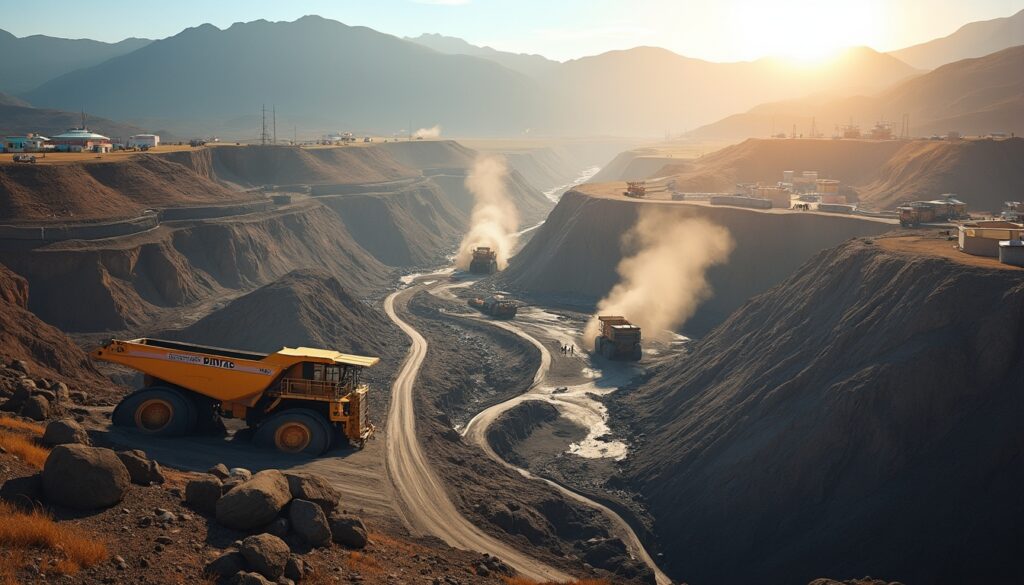Despite global shifts toward renewable energy, coal mining remains a cornerstone of South Africa's economy. The Opening of Seriti's Naudesbank Colliery 2025 has reignited debates over energy security and economic development. Mineral Resources and Energy Minister Gwede Mantashe declared during the official colliery opening that "King coal is back!" His statement reinforces coal's enduring importance.
Coal provides the baseload power needed across the country. It ensures homes, businesses, and industries receive the consistent electricity supply necessary for daily operations. In 2024, research on global coal consumption trends in 2024 confirmed that despite shifting priorities worldwide, coal remains an essential component of many energy strategies.
Coal mining remains not only an energy requirement but also a significant employment driver in South Africa. In 2024, the mining industry directly employed 484,837 people. The impact is even broader, with over 1 million individuals benefiting from indirect employment. This is critical in a country facing over 30% unemployment, particularly in regions with few alternative job opportunities.
Mineral Resources and Energy Minister Mantashe’s decision to label coal as a critical mineral mirrors strategic shifts in how resources are valued. He noted that coal is needed to power the extraction of other crucial materials. This was further detailed in discussions about the critical minerals race amid resource nationalism, which positions coal as an indispensable resource in connecting energy generation with advanced mining operations.
Coal also plays a vital role in supporting mining operations for other essential minerals. The energy derived from coal is what powers the mining and processing of materials such as lithium and cobalt. This interplay is key to understanding mining’s crucial role in the clean energy transition. Coal, despite its controversial reputation, remains a vital link in realising a sustainable energy future for the nation.
Seriti Resources' Naudesbank colliery is a major investment in the local coal sector. With over R500 million dedicated to this project, the colliery demonstrates significant confidence in coal’s long-term role in the economy. This investment has come at a time when many international companies are pulling out of coal assets, signalling a divergent, nationally focused strategy.
The colliery is set to create around 300 direct jobs across various skill levels. Engineers, equipment operators, and other professionals will find opportunities at the mine. The multiplier effect will also create several thousand indirect jobs in ancillary services, supply chains, and local businesses.
The project is not just about generating employment. Seriti’s investment extends to community support through infrastructure upgrades. Road improvements, water access projects, and new community facilities are all part of the package. Such initiatives underscore a broader commitment to local development.
Production-wise, Naudesbank Colliery is projected to yield approximately 1 million tonnes of coal each year during its underground phase. This output is expected to bolster South Africa's energy security and help generate export revenues as international markets continue to rely on coal. This contributes to a broader economic strategy that relies on robust resource extraction, as discussed in detail in landmark methane regulations in coal mining emissions.
Local municipalities will feel a significant impact through taxes, royalties, and social development contributions. These revenues help fund essential public services. In regions where resources are scarce, such investments enhance the quality of life and encourage further community growth.
Seriti Resources broke ground on the colliery in November 2024. Remarkably, first coal production was achieved by late February 2025—just months after initial construction. This rapid development cycle is a testament to the strategic importance of the Opening of Seriti's Naudesbank Colliery 2025 for the economy.
The current phase of the project utilises opencast mining for quick access to coal reserves. Meanwhile, preparations for a transition to underground mining offer a dual advantage. They enable early revenue generation while paving the way for deeper, larger-scale extraction. This approach delivers immediate economic returns while planning for the future.
Naudesbank’s development schedule includes several key milestones. The shift to underground mining is set for around 2027, a move that will allow access to larger reserves not available through surface mining. The mine is projected to have an operational life of around 12 years until approximately 2037. Such long-term planning ensures stability for workers and communities alike.
A progressive rehabilitation plan is a core component of the project. As opencast areas conclude, they are restored while other sections continue operating. This phased rehabilitation minimises environmental impact while ensuring that the mine’s lifecycle is both profitable and sustainable. The emphasis on environmental responsibility is also echoed in discussions on transforming the mining industry through ESG challenges.
Government support for coal mining in South Africa is deliberate and measured. The Department of Mineral Resources and Energy has developed frameworks that balance environmental considerations with economic imperatives. Unlike many Western nations pursuing rapid decarbonisation, South Africa recognises that coal is currently indispensable for its development needs.
The government’s policies have been crafted to promote investments from companies like Seriti, Exxaro, and Thungela while streamlining permitting processes. Such policies recognise the essential role mining companies play in community development and infrastructure building, elements that have historically driven economic growth in the country.
This strategy is not without controversy. While international mining giants like Anglo American and BHP have reduced their coal exposure, domestic companies continue to invest robustly. South African policymakers maintain that coal’s significance extends beyond mere energy production. It is a critical foundation supporting regional development and employment creation.
The relationship between the government and mining companies has evolved to become one of pragmatic partnership. Minister Mantashe has argued that profitable mining operations are better placed to contribute to society through employment and community projects. This approach pivots around a philosophy that strong economic performance underpins social progress.
Key elements of this partnership include:
- Infrastructure development initiatives spearheaded by mining companies.
- Robust social responsibility measures integrated into mining agreements.
- Streamlined regulatory processes that foster continued investment.
- A shared commitment to environmental stewardship, where industry best practices are applied.
Mining companies are expected to contribute substantially not only to national GDP but also to local community wellbeing. This symbiosis between economic and social objectives ultimately strengthens the national development agenda, making projects like the Opening of Seriti's Naudesbank Colliery 2025 a pivotal national resource.
International trends clearly show a divergence in coal market strategies. Some multinational conglomerates are shifting away from coal due to environmental concerns and shareholder pressures. Meanwhile, South African companies are expanding their coal portfolios to meet both domestic energy needs and international market demands, particularly in developing economies.
Local coal producers have embraced cleaner, more efficient extraction methods. They are investing in cleaner coal technologies to curb environmental impacts. Despite global pressures, South Africa’s coal providers are adapting to maintain production levels while addressing the need for improved sustainability practices.
Responsible environmental management is critical. South African mining companies are now implementing strategies such as:
- Enhanced water conservation efforts.
- Progressive land rehabilitation measures.
- Advanced emissions reduction techniques.
- Real-time environmental monitoring systems.
These steps ensure compliance with stringent environmental regulations while gradually easing the transition to more sustainable mining practices.
Some external sources also underscore the importance of fostering sustainable development within the mining sector. For example, industry commentators at mining weekly have highlighted the economic and social benefits derived from such projects, reinforcing the overall strategy of strategic domestic investment.
When will Naudesbank Colliery reach full production?
The shift to underground mining is planned for around 2027. At full production, Naudesbank Colliery will yield approximately 1 million tonnes of coal per year. The phased approach starting with opencast operations allows for early revenue generation.
How long will the colliery operate?
The mine has an estimated lifespan of 12 years, meaning operations are anticipated until about 2037. This timeline hinges on factors such as coal prices, extraction costs, and potential reserve discoveries.
What impact will the colliery have on local communities?
Seriti’s investment is expected to generate 300 direct jobs and thousands more indirectly. Additionally, community projects in water, road infrastructure, and local facilities will provide lasting benefits.
Is coal mining declining in South Africa?
According to Minister Mantashe, coal mining is growing despite global trends. Domestic companies remain committed to coal, ensuring that projects like the Opening of Seriti's Naudesbank Colliery 2025 continue to bolster the economy over the coming years.
Want to Capitalize on the Next Major Mineral Discovery?
Discovery Alert instantly notifies investors of significant ASX mineral discoveries through its proprietary Discovery IQ model, transforming complex data into actionable insights for both short-term traders and long-term investors. Explore why historic discoveries can generate substantial returns by visiting Discovery Alert's dedicated discoveries page and start your 30-day free trial today.




